Letter to a young mountaineer, XIII: Never let go of the mountains of your life
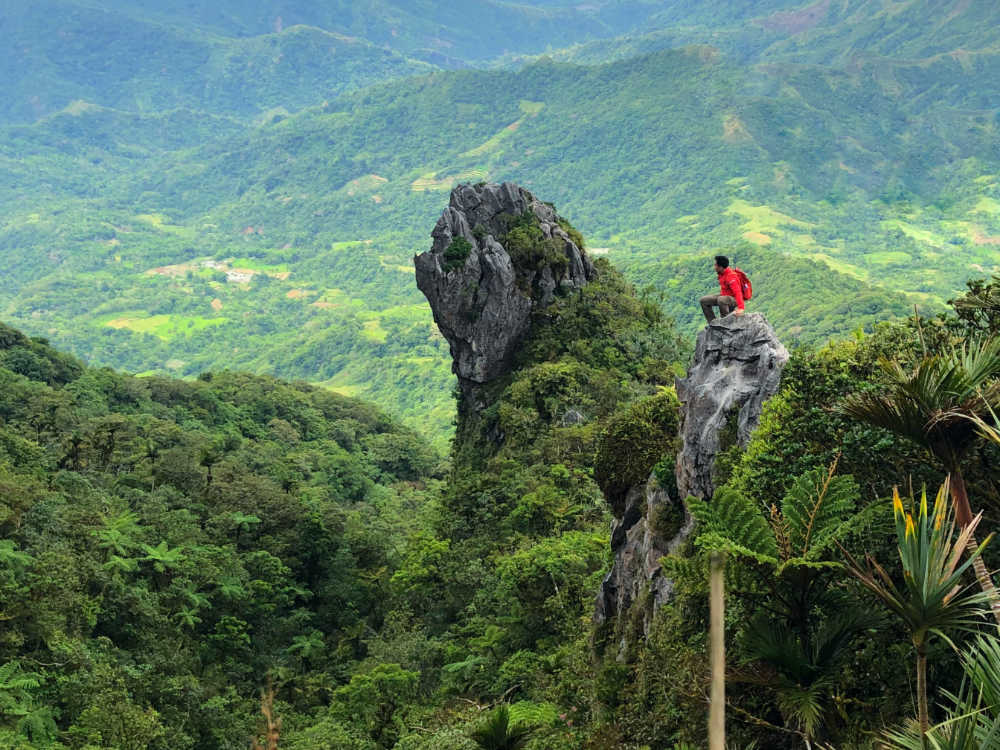
You used to be the youngest, and perhaps the strongest and fastest in your group. But now, you are not so young anymore, and perhaps not as strong or fast as you used to be.
You used to have all the time in the world. But now, you feel the opportunities to climb mountains are getting fewer and farther between. You used to climb a mountain every weekend, but nowadays there are Saturday mornings when you are too tired from work and all you want is to stay in bed. When you realise how much has changed in your (outdoor) life, you feel dejected. And when you realise how much has changed in your friends’ own lives to a point that you no longer get to climb together, you feel even more so.
Growing old is as inevitable as the sun rising at the summit of Mt. Pulag, or the winds blowing at the campsite of Tarak Ridge. It is part of life. As you age, priorities change, both yours and of the people you hike with. When there’s a conflict between your career and your climbing, the latter will take a back seat, because you have to earn a living. Perhaps when you were a student you used to joke that “hiking shouldn’t get in the way of my schooling”, but you eventually realise that it is easier said than done.
There are two opposite responses to this conundrum. The first is to abandon the outdoors, never to come back . This path is paved by excuses – I’m not prepared; I no longer have hiking shoes; I’m too busy – and these excuses feed into each other: You are not fit because you do not hike; you do not hike because. you are not fit. As people climb higher their so-called ‘career ladders’, they stop climbing mountains. If work is not a problem, then family responsibilities get in the way. And when there is actually an opportunity to climb mountains, the will to wake up and pack one’s bags is nowhere to be found.
The second is embrace the outdoors at the expense of your career. A year off leads to two; an extended leave leads to resignation. For some, the reason to abandon work is spurred by a genuine and understandable distaste for the working’ life, especially when you find yourself in a position where there are limited benefits: very few days of vacation leaves – and very few bosses who understand the need for employees to take a break – and find a life outside of their careers. For others, the will is to work is not simply there; perhaps they have problems in school or work; perhaps there is also the hope that the outdoors can be a source of living. There are many reasons for people to shun employment, and we cannot easily judge them.
The challenge for you, however, is to avoid the extreme of abandoning either your career or the outdoors.
In the first place, don’t romanticise as the outdoors as an escape from your life’s problems. The mountains may be a source of wisdom and inspiration, but they cannot give you the answers to the tests and trials in your life. The mountains may be a worthy pursuit, but they cannot be an excuse to hide from your responsibilties, whether in school, at work, or at home. Yes, we can turn to the outdoors during times of emotional turmoil. And yes, we can draw energy from the trail, inspiration from the summit, and peace from spending a night or two in the campsite. Even so, if you have life problems, confront them as you would a difficult route: Not by running away, but by preparing, analysing, and putting your skill and experience to good use.
But at the same time, don’t sacrifice the outdoors in pursuit of your career. You can always find time for the mountains. Maybe not as much as you used to be. Maybe you have to choose an easy hike instead of a difficult one. But if you have the will, there is always a way. Instead of thinking of the outdoors as an obstacle to your rest, think of it as rest itself, maybe not physically, but certainly mentally. If your work doesn’t allow you to spend even one day in a month to hike, then maybe you need to find another job. Or perhaps you need to improve your skills so you’re more efficient in doing your tasks.
Sometimes, it is also a matter of mindset. Perhaps when you were a student, you thought you can do a lot of ‘extra-curricular activities’, which include going to the outdoors. But somehow when you started working, you took on your job as your sole identity. But please rethink this notion that when you’re an ‘engineer’, you’re just an engineer, or when you’re an analyst, you’re just an analyst. Strive to be singular in your uniqueness, but plural in the things that you do. Don’t let yourself be defined by your work. Remember: A good employer will value the happiness of their employees – and thus allow them to climb mountains. As long as do your best, and show your worth, I’m sure you will find superiors who support your passions.
Of course, if you do go outdoors, make sure you honour your indoor commitments. Don’t skip work just because you saw another mountain to climb – and decided to extend your leave (or, if you’re a student, skip classes). If you say you will be back on Monday morning, be back on Monday morning. Don’t give yourself – and your fellow mountaineers – a bad name by being derelict in your duties.
The middle way is to strive doing your best in both your work and your recreation, that is, by loving what you do, and doing what you love. Put the same passion you have for the peaks to your work, and you will be a good employee. Put the same hardwork and discipline you have for your work to your hikes, and you will be a better climber.
One other thing you may perceive as an obstacle is your family, especially when you have children. But this, too, is not really a problem because you can always bring your family to the outdoors; I can think of no better activity. If you are in a relationship, the mountains shouldn’t get in the way: they can either be venues for togetherness – or giving space to one another’s personal pursuits. And when you do have kids, take them to your first peaks and share with them the gift of adventure, which is one of the best gifts a parent can give their child. Take them camping, make them fall in love with nature and give them memories that will last a lifetime.
Finally, as you grow older, you should also realise that there are many ways to appreciate the mountains. Sometimes, you can climb them, but sometimes you can just admire them from a distance. That’s okay. Sometimes you can climb all the way to the peak, sometimes you can just go part of the way. That, too, is okay: the newbie thinks of nothing but the summit, but the veteran seeks first and foremost the trail. Patience is the virtue that allows you to look at a beautiful peak and say: “There will be a next time”. As a mountaineer, more than speed or strength, you must have patience.
Another way to pursue the outdoors as you grow older is to help the younger ones. Share your knowledge. Share your resources. Share your gear – they are best used, not stored! And yes, share your passion! By mentoring other people to reach for the mountains of their dreams; by inspiring them to protect nature, you are helping make sure that the same mountains that have given you so much joy in your life will still be around for the generations to come.
And so when you feel the years weighing down your spirit like a heavy backpack, my advice is: Never let go of the mountains of your life! Keep going back to them, and I promise you that like the best of friends, they will never let you down.
Mexico City
July 12, 2018
LETTERS TO A YOUNG MOUNTAINEER
Personal essays by Gideon Lasco
I: A letter to a young mountaineer
II: Why do accidents happen?
III: Of doing and loving
IV: A difficult situation
V: Wise words from an old man
VI: The Philippines that I love
VII: The calling
VIII: The girl who climbs mountains
IX: A mountaineer’s legacy
X: What beginners can teach us
XI: The friends inside your backpack
XII: Unfollowing one’s self in social media
XIII: Never let go of the mountains of your life
XIV: Before you hike abroad

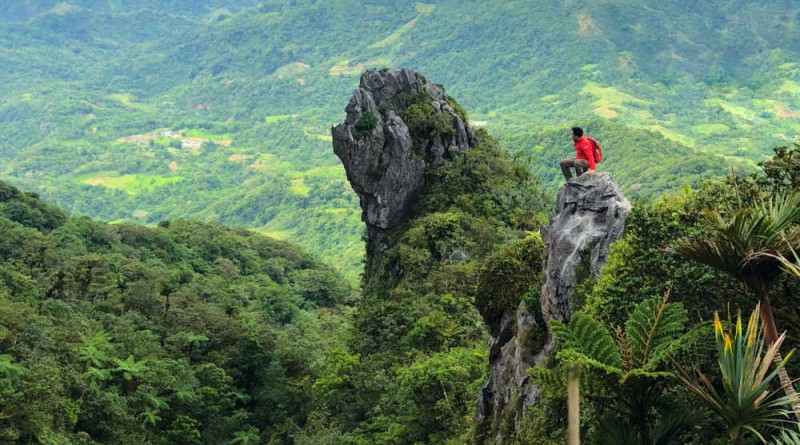

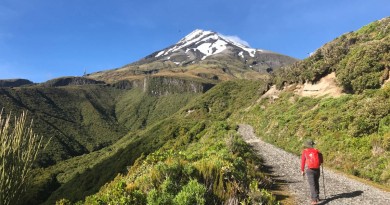
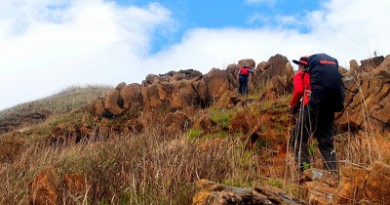
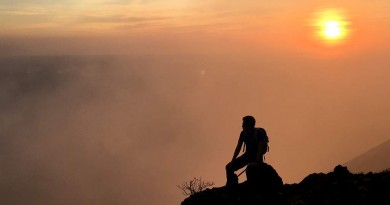
Leave a Reply
Be the First to Comment!